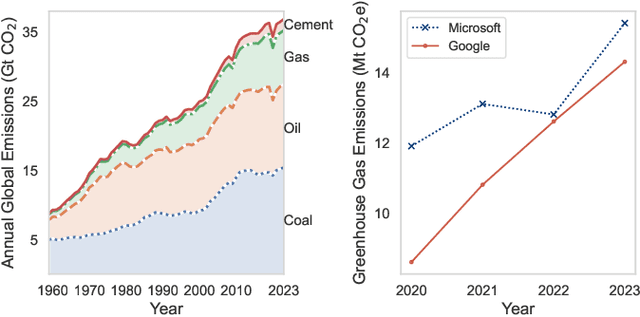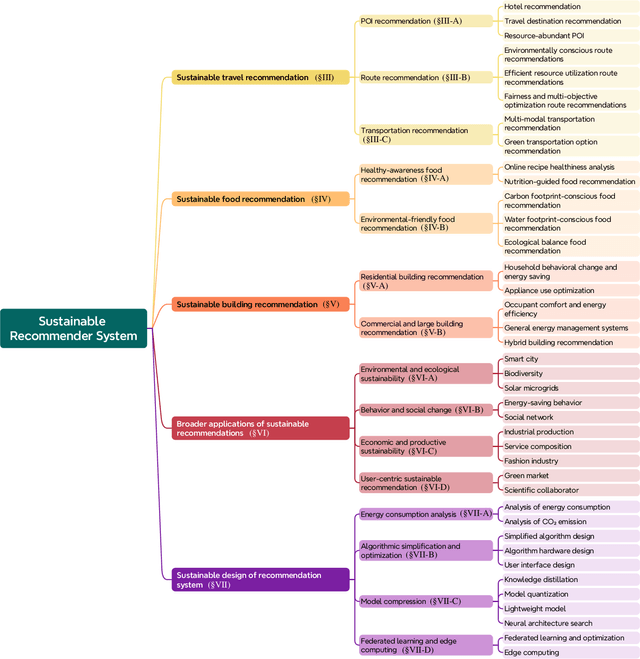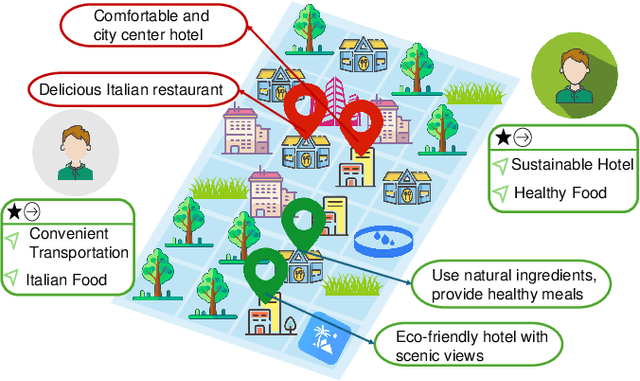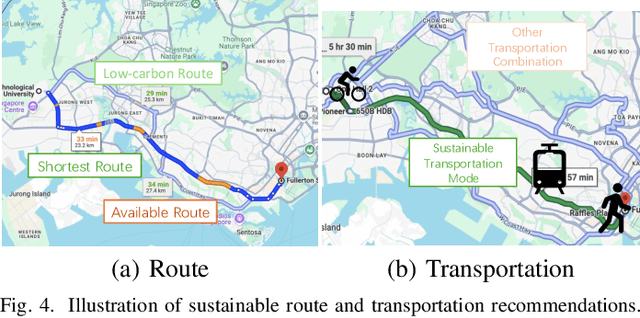Advancing Sustainability via Recommender Systems: A Survey
Paper and Code
Nov 12, 2024



Human behavioral patterns and consumption paradigms have emerged as pivotal determinants in environmental degradation and climate change, with quotidian decisions pertaining to transportation, energy utilization, and resource consumption collectively precipitating substantial ecological impacts. Recommender systems, which generate personalized suggestions based on user preferences and historical interaction data, exert considerable influence on individual behavioral trajectories. However, conventional recommender systems predominantly optimize for user engagement and economic metrics, inadvertently neglecting the environmental and societal ramifications of their recommendations, potentially catalyzing over-consumption and reinforcing unsustainable behavioral patterns. Given their instrumental role in shaping user decisions, there exists an imperative need for sustainable recommender systems that incorporate sustainability principles to foster eco-conscious and socially responsible choices. This comprehensive survey addresses this critical research gap by presenting a systematic analysis of sustainable recommender systems. As these systems can simultaneously advance multiple sustainability objectives--including resource conservation, sustainable consumer behavior, and social impact enhancement--examining their implementations across distinct application domains provides a more rigorous analytical framework. Through a methodological analysis of domain-specific implementations encompassing transportation, food, buildings, and auxiliary sectors, we can better elucidate how these systems holistically advance sustainability objectives while addressing sector-specific constraints and opportunities. Moreover, we delineate future research directions for evolving recommender systems beyond sustainability advocacy toward fostering environmental resilience and social consciousness in society.
 Add to Chrome
Add to Chrome Add to Firefox
Add to Firefox Add to Edge
Add to Edge